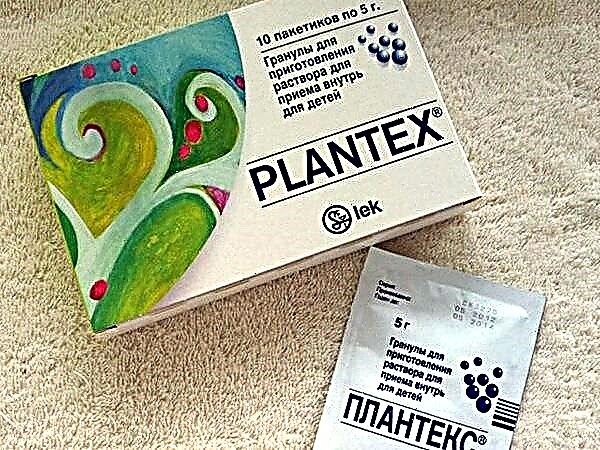
Dieting for a child with chronic constipation should be carefully considered. In each case, the causes of constipation can vary significantly. Often unbalanced and inappropriate nutrition leads to the appearance of irregular bowel movements in the child.

Causes of occurrence
The cause of constipation may not always be associated with diseases of the digestive system. Dr. Komarovsky even believes that the absence of a chair in a child cannot always be interpreted as a pathology. Constipation can also occur in healthy babies.


This happens more often during the hot season. When it is very hot outside, the child's body needs a huge amount of water. All the liquid that enters the body of the crumbs with drinks or fruits, vegetables, is absorbed in the intestines.
If the baby is very active physically, a huge amount of water is lost during the sweating process. The body also loses some of the fluid when breathing. It turns out that there is not enough water in summer.
The function of the large intestine is to return all water inside as much as possible when excreting feces from the body. After all, the human body is 70% liquid! When the balance between water intake and water loss is disturbed in hot weather, constipation often occurs. In such cases, a strong water imbalance should be avoided. In summer, let your baby drink more (especially if he runs and plays a lot on the street, and also attends sports sections).

Nutrition rules
Special nutritional therapy allows to correct problems with stool retention in babies. In order for the child to have normal stool, the following rules should be considered:
- Observe the feeding schedule. At 2 years old, children should eat at least 5 times a day. Diet should not be violated! Timely meals give signals for the intestines to work. All enzymes and hormones with a strict diet begin to be secreted harmoniously, strictly at the same time. This allows you to adjust the digestion process almost by the hour.
- The last meal of the day is about two hours before bedtime. This will promote good sleep as well as digestion. The digestive system must rest during sleep. A heavy meal shortly before bed can overwhelm the body and reduce metabolism.
- After waking up, be sure to invite your child to drink half a glass of clean water. It should be plain water without gas, room temperature. Passing through the intestines, the liquid will start its work. This is an excellent prevention of constipation in babies of any age.
- Drinking regime is very important for daily stool. A small body needs at least a liter of water per day. In the summer, you need 300-400 ml more fluid (depending on the child's age).
- Encourage your child to exercise. For children who love to play in a team, visiting sports sections is more suitable. Physical activity has a positive effect on the activation of intestinal motor function. Food moves faster through the gastrointestinal tract, reducing the likelihood of constipation.
- Don't forget about fresh vegetables and fruits. Rotate different vegetables every day to get a variety of vitamins. Add bran to meals. Enter them carefully. For children over the age of three, ½ to 1 teaspoon per day is sufficient. It is better for babies from one to two years to make a bran-based broth.
- Be sure to make sure your baby has breakfast. Breakfast starts the body's work, signaling the organs to wake up. The best choice would be porridge boiled in water or low-fat fermented milk products. A rich breakfast is completely useless for a child.
- Do not overfeed your baby under any circumstances. With a large amount of food, the stomach stretches after a while. This provokes the appearance of chronic gastritis. The size of the portions must strictly correspond to the age norms for children.
What foods should be included in the children's menu?
It should be remembered that the main key ingredient in any treatment for constipation is fiber. It is found in all natural plant foods. Fruits, vegetables and grains are the leaders in fiber content.
Fiber accelerates the movement of food through the gastrointestinal tract and promotes the timely release of feces. It helps prevent the onset of malignant tumors and chronic bowel disease. Regular consumption of vegetables will be an excellent means of preventing ulcerative colitis or Crohn's disease.

For stool to be daily, the following foods should be included in the child's diet:
- All types of cabbage. This can be white cabbage, cauliflower, broccoli and Brussels sprouts.
- Berries and fruits. Children with constipation need to eat fruits along with the skins. Of course, first they should be thoroughly washed under running water and doused with boiling water. It is in the fruit peel that a huge amount of fiber is contained, which will cleanse the entire intestine of the child gently without damaging the walls.
- Various vegetables. Children from 6 months to one year old should give preference to mashed cauliflower or broccoli. You can enter mashed potatoes or grated boiled carrots. For older children, the expansion of the vegetable table has already been shown. Mom can make casseroles or vegetable stews.
- Baking and bread made from first or second grade flour. You can use bran bread.
- Raisins, dried apricots, dates and prunes. Babies up to a year are given compotes made from them. Older children can be offered berries pre-soaked in boiling water and cooled. Prunes perfectly activate the intestines and relieve constipation.
- Fresh yoghurts... Pay attention to the production time. Only fresh, freshly prepared fermented milk products stimulate the intestines. Foods cooked more than 5 days ago have the opposite effect. They usually strongly anchor the stool.

Diet number 3
To normalize the stool, the pediatrician usually prescribes nutritional therapy - diet number 3. This diet can be suitable for both adults and children. It helps to reduce putrefactive processes in the intestines and reduce bloating.
What to include in the diet?
The diet is based on the following foods:
- Meat and fish dishes. They should be made from lean meats or fish. Better to bake or steam. You can prepare a variety of chicken dishes. Remove the skin before cooking.
- Various fruits or vegetables. Supplementing each meal with a fresh vegetable salad will help normalize bowel function.
- All dried fruits, especially prunes.
- Freshly prepared cottage cheese, kefir. It is recommended to prepare fermented milk products at home (using special starter cultures containing useful lacto- or bifidobacteria). Such yoghurts or kefir can be prepared every day.
- Cooked porridge. For infants who receive complementary foods, porridge should be boiled when cooking. The consistency should be liquid, more like a soup. By the year you can cook the porridge already thicker. An excellent option would be buckwheat porridge, as well as oatmeal.

What foods are prohibited?
During diet number 3, it is strictly prohibited:
- Strong tea, coffee, cocoa, jelly, whole milk.
- Semolina and rice porridge.
- White bread, baked goods and pasta.
- Fatty, smoked and salty foods. These are, for example, pork, duck or lamb. It is dangerous for young children to include these foods in their diet! Not only can they aggravate constipation, but also negatively affect the liver and gallbladder.
- All pickled and canned foods. After heat treatment, there is practically no fiber in them, but a lot of spices and vinegar.
- The child also should not be given chocolates, pastries with fat or butter cream, cakes and pastries.
Sample menu for a week
To successfully follow any therapeutic diet, doctors recommend making a menu a week in advance. Make a menu on Saturday next week. This will allow you to buy all the food you need on Sunday to start cooking on Monday. Experiment with foods, try different recipes.

What should you cook for your baby during the week if he is constipated?
Monday
Breakfast: Oatmeal pancakes with raisins. Strawberry juice.
Lunch: Grated apple with prunes. You can season with a little sour cream or yogurt.
Dinner: Vegetable puree soup. For dessert - a couple of unsweetened crackers and weak tea.
Afternoon snack: Oven baked curd pudding with dried apricots. Cocoa in milk.
Dinner: Fish meatballs in a creamy sauce with buckwheat. Cabbage salad with cucumber, seasoned with vegetable oil. Blackberry fruit drink.


Tuesday
Breakfast: Cheesecakes with berry sauce. Dried fruits compote.
Lunch: Banana.
Dinner: White fish ear. A slice of bran bread. Unsweetened tea.
Afternoon snack: Whole grain crackers with tea.
Dinner: Vegetable casserole. Kefir.


Wednesday
Breakfast: Oatmeal with prunes. For sweetness - honey. Cocoa.
Lunch: Grated apple with dried apricots.
Dinner: Cabbage soup cooked in weak chicken broth. In addition, whole grain biscuits. Berry compote.
Afternoon snack: Cottage cheese and cherry casserole. Unsweetened tea.
Dinner: Chicken cutlet with cucumber and tomato salad. Dried fruits compote.


Thursday
Breakfast: Oatmeal muesli with milk and dried fruits. Apple and dried apricot compote.
Lunch: Orange.
Dinner: Chicken soup with vegetables and noodles. Salad of cucumbers and grated carrots, seasoned with vegetable oil. Unsweetened tea.
Afternoon snack: An Apple.
Dinner: Chum salmon cutlet with mashed potatoes. Vegetable cabbage salad with carrots and herbs. Cranberry juice.


Friday
Breakfast: Buckwheat pancakes. Cocoa in milk.
Lunch: Fruit salad.
Dinner: Borscht cooked in lean veal. Carrot salad with raisins. Unsweetened tea.
Afternoon snack: Yogurt with banana.
Dinner: Cauliflower casserole. Tea with plum jam.


Saturday
Breakfast: Oatmeal pancakes with strawberry jam. Unsweetened tea.
Lunch: Whole Grain Cocoa Crackers.
Dinner: Soup with vegetables and chicken meatballs. Young cabbage salad. Prune compote.
Afternoon snack: Curd pudding.
Dinner: Buckwheat with vegetables. Berry juice from currants.


Sunday
Breakfast: Banana cupcakes with prunes. Unsweetened tea.
Lunch: Apricots.
Dinner: Chicken meatballs with boiled buckwheat. Cucumber and greens salad. Berry compote.
Afternoon snack: Applesauce with crackers.
Dinner: Stewed cabbage with chicken cutlet. Sea buckthorn fruit drink.


A couple of hours before bedtime, you can give your child any fermented milk product. Homemade yogurt or kefir are perfect here.

Dieting for children with chronic constipation is an important part of comprehensive treatment. Eating a healthy diet with the mandatory inclusion of bowel-stimulating foods will help you make your bowel movements daily and regular.
Diet recommendations for constipation in a child will be told by Dr. Komarovsky in the video below.



